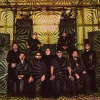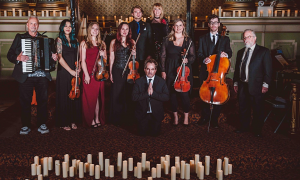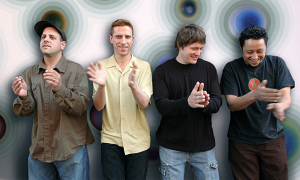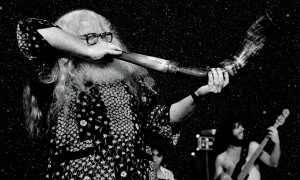Home » Jazz Articles » From the Inside Out » Sometimes Jazz Takes Guts
Sometimes Jazz Takes Guts
 Brownout
BrownoutBrownout Presents Brown Sabbath II
Ubiquity Records
2016
Brownout bandleader and guitarist Adrian Quesada listened to a lot of different music, including blood-curdling heavy metal monsters Black Sabbath, while growing up in South Texas. Even while creating original music more reflective of their Mexican and American funk, blues and rock roots, he and his bandmates never lost their taste for Britain's Sabbath. Their first album of Sabbath covers, Brownout Presents Brown Sabbath (2014, Ubiquity) was acclaimed by both NPR, who named it one of that year's fifty best releases; and Sabbath frontman Ozzy Osbourne, who invited the band to perform at an Ozzfest gig in Mexico and was quoted raving, "It's fucking awesome—this fucking Mexican guy sounds just like me!"
"When we recorded Volume I, we had only played a couple of live shows, and it was a very new thing," Quesada now recalls. "We've grown as a live band and gained a new level of confidence and ownership over what we do with Black Sabbath. It was important to capture another moment in time showing the band's development and stamp on the music."
"Stomp on the music" is more like it, thanks to dynamite contributions from trombonist and horn arranger Mark Gonzalez, dual guitarists Quesada and Beto Martinez, and a rhythm section that fully plumbs Sabbath's deep, powerful originals into a pulsating, unrelenting groove.
"Fairies Wear Boots" quietly starts with percussion but electric guitar and horns quickly accelerate the pedal to (heavy) metal speed. The horns nearly pop out of the mix while guitars and drums lead the ensemble deeper into its bone-cutting groove; the lead guitar solo screeches psychedelic and nasty, and supporting percussion steers the hard-driving rhythm toward Latin funk. Horns punctuate the spaces between the heavy, slow-moving chords—and all the anxious, frustrated and helpless feelings of addiction—in "Snowblind."
Brownout thrashes "Symptom Of The Universe" with a piledriver beat and buzzsaw guitars that seek out and destroy the gap between heavy and speed metal—but it also features two swivel-hipped percussion/horn breakdowns which sound like a laid-back low rider cruising down a sunny LA thoroughfare. The closer "Sabbath Bloody Sabbath" culminates in a scalding cauldron of Latin percussion and heavy metal hooks, shooting off exploding sound like a machine gun emptying all its chambers before resting in silence.
Main vocalist Alex Marrero admirably captures Ozzy's "teetering on the edge of sanity" style while guest vocalist Aaron Behrens (from Ghostland Observatory) sounds more intent on channeling Ronnie James Dio's gothic, mythical approach.
"For us, Black Sabbath always had such a bounce to it that comes from the era where you hear jazz, soul, blues and funk influences in heavy rock music, and that lends itself well to a band like us whose primary influences are from the late '60s and early '70s," Quesada concludes. "Black Sabbath is sinister and heavy, but rhythmically really similar to a lot of what we play."
 Ray Charles Orchestra
Ray Charles OrchestraZurich 1961
The Montreux Jazz Label
2016
We generally take it for granted now, but Ray Charles' trademark blend of jazz, gospel, R&B and soul in a large ensemble or orchestral setting was a unique sound mastered by few artists when this 1961 set was recorded. Number 41 in the Montreux Jazz Label's Swiss Radio Days Jazz Series, Zurich 1961 is a historical and musical treasure which might have been better recorded but could not have been better performed.
Zurich 1961 reaches crackling, up-tempo jazz heights and the depths of the lowdownest and dirtiest blues, thanks to the collective talent in one of Charles' most star-studded orchestras, here featuring trumpeter Marcus Belgrave, saxophonists Hank Crawford (alto and bandleader) and David "Fathead" Newman (tenor sax and flute), and Elbert "Sonny" Forriest, guitarist for such R&B kingpins as The No Coasters and Percy Mayfield (who penned Charles' hit "Hit the Road, Jack"), plus soulful vocal backing from the always sensuous Raeletts.
Quincy Jones' arrangements of great jazz tunes keep this set popping. The first two tunes, "Happy Faces" (Sonny Stitt) and "Along Came Betty" (Benny Golson), sound like the Count Basie Band (for whom Jones also arranged), with the rhythm section blowing up its bottom and ensemble horns blasting off its top. Crawford's truly sings through a surprisingly soft and sweet "Misty" while Jones chips in his own "The Birth of a Band," which jumps out of the gate at a jackrabbit's pace and grows even more powerful when the saxophones and trumpets trade blistering fours. It's hard to imagine the Basie band or any one of its contemporaries playing this instrumental tour-de-force, which the crowd acknowledges by interrupting with mid-song applause, any better. "We were the last of the big bands, you know," arranger Quincy Jones recalls in this set's liner notes. "We were number three after Duke Ellington and Basie."
But even better, Brother Ray and company slowly unroll several mournful blues heavy enough to flatten you. From the leader's stark and lonely self-accompanied first verse through the band's closing eruption of sound and emotion, "Come Rain or Come Shine" stretches into eight minutes of agonized yet joyful blues. The bare hurt in Charles' original "I Believe to My Soul" (famously covered by Van Morrison) aches even more deeply, raw pain salved by the Raelettes' soothing voices.
Zurich 1961 also represents a tipping point in Charles' career: The previous November (1960), "Georgia on My Mind" became the #1 pop single; six months after this October 1961 performance, Charles would unleash (in April '62) the #1 pop single "I Can't Stop Loving You" and groundbreaking Modern Sounds in Country & Western Music.
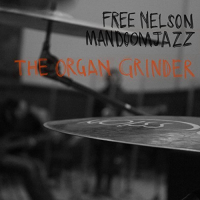 Free Nelson Mandoomjazz
Free Nelson MandoomjazzThe Organ Grinder
RareNoise Records
2016
Search as far and wide as you like but you won't find any one band that sounds like Edinburgh, Scotland's Free Nelson Mandoomjazz. You CAN find about eight, though: Their sprawling, monstrous "doomjazz" combines harmonic and rhythmic streams from various free jazz and heavy metal schools, including and especially Black Sabbath, Albert Ayler, Electric Wizard, Sonny Rollins and Wayne Shorter. "The initial concept of the band was quite straightforward: doomjazz. 'Let's see if we can combine these two seemingly disparate genres,'" recalls bassist Colin Stewart. "But I think since then we've developed a lot in terms of what we can each bring to the group."
Saxophonist Rebecca Sneddon agrees that the band's compositional approach has progressed since they first began to The Organ Grinder, their third release. "Each of us has taken a more collaborative role in writing for all instruments, not just our own," she suggests. "I think we all have a strong desire to push the boundaries of our own instruments, which creates limitless possibilities in composition."
On The Organ Grinder, their uniquely primal and minimalist trio sound—completed by percussionist and keyboardist Paul Archibald—sounds more tightly wound than ever. So tight, in fact, that it often explodes, right from the leadoff "Open The Gate," the thunderous sound of an awakening giant's first massive footsteps, treading a bass line so thick and heavy that you can chew it; meanwhile, drums tumble and splash and, from a distance, saxophone wails like Ayler or Archie Shepp wading into the deep end of a Black Sabbath bender. "Inferno Pt. 1" and "Always Go Left in the Maze" explore this same deep, profound rhythmic and harmonic darkness. You might think you could find sunshine and lightness of being in a piece titled "Bicycle Day," but you'd be mistaken.
Due to the pure and singular vision of the main ensemble's collective approach, guest musicians Patrick Darley (trombone) and especially Luc Daoud Klein (trumpet) considerably impact the Mandoomjazz sound. "All three of us have worked with Luc Klein before in various jazz/blues projects," Archibald explains. "We first met in 2010-2011. For some years now he's been living in Amsterdam as part of the jazz scene there. One of my earliest ideas for the album was that I wanted to do a take on 'Calcutta Cutie' by Horace Silver. We needed a trumpet for the head so I asked Luc to join us for that track."
"Horace Silver is a very important artist to me," Archibald continues. "He's what got me listening to jazz in the first place."
Archibald's piano and Klein's trumpet nudge "Calcutta Cutie" into a jazz sort of shape: Stewart's metronomic bass rocks in one direction while the piano chords tug the music in the other, and sax combines with trumpet in a be-bop harmonic attack. Darley's trombone joins Klein's trumpet to paint "LORA" in jazz sound, bass and drum the only accompaniment for trombone and trumpet solos that sound, in these stark surroundings, lost in deep, far-off jazz space.
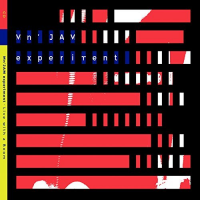 Mn'JAM experiment
Mn'JAM experimentLive with a Boom
Self Produced
2016
Can computers be programmed to improvise? That's just one of the questions you'll consider in response to Live with a Boom, the first multimedia presentation by Melissa Oliveira de Sousa and João Artur Moreira (JAM) with other like-minded colleagues in the Mn'JAM experiment.
You can trace the modern, global (perhaps post-modern, post-global) sound of Oliveira's ensemble back to their credentials: Belgian drummer Tuur Moens teams with José Carlos Barbosa, one of Portugal's most sought bassists, on double-bass to rhythmically supplement turntables manned by Portuguese native JAM, who studied jazz at the New England Conservatory and jazz composition at the Rotterdam Conservatory. Miguel Amaral (Portuguese guitar), Vixilio da Silva (guitar) and bass clarinetist Joris Roelofs, the first non-American to receive the Stan Getz/Clifford Brown Fellowship Award, serve up jazz, rock and jazz-rock fusion solos. Bandleader and vocalist Oliveira, an Australian native who studied at Berklee, a classical conservatory in Portugal, and completed her master's degree in jazz performance at the Royal Conservatory of the Hague, oversees the collective.
Much of this music, such as "Printer" and the opening "R2D2," seems simultaneously inspired and propelled by technology. Even so, Moens' dynamic, quicksilver rhythms and Oliveira's fetching voice conjure its most powerful magic. They collectively take the abstract thoughts of Radiohead's "Optimistic" even further out, with the leader's quiet vocal standing as a strong, tall pillar in the midst of the swirling samples, beats and other electronics, scatting and meowing and disappearing like a hip jazz cat.
"Pensamentos," Oliveira's dreamy recitation of a poem by Portuguese poet Fernando Pessoa, sounds like she's reminding herself of something she once remembered, and the group's arrangement builds up a bright if brittle melody behind "Maio Maduro Maio" by Portuguese folk music legend José Afonso.
Live with a Boom concludes with two even more inventive reimaginations. Bass and drums abstract the original rhythm and melody of Bill Withers' iconic blues grind "Use Me," while Oliveira coos and purrs Withers' rootsy vocal into a softer, more slithery sound; the CD closes with her dramatic voices-only reimagining of the Gershwin's "It Ain't Necessarily So" as a bonus track.
Watching the Live with a Boom DVD (from which the audio directly comes) delivers an even broader and deeper musical experience: It comes in nine different languages and provides an overview documentary, track-by-track documentaries, an introductory video on the band's songwriting process, and 5.1 surround sound.
 Joyce Moreno
Joyce MorenoCool
Far Out Recordings
2016
Cool is the album that Brazilian singer-songwriter Joyce Moreno simply refused to make for decades. "For over 20 years I've been requested to make an album with North American jazz standards. Nothing against it, but I always said no," she explains. "I had the strange feeling that such an album would look weird in my discography, too commercial—like I didn't have any new tricks up my sleeve, and yes, I always have plenty. Music has never ceased to bless me with new ideas and new tunes. So why on earth should I embark on such a trip?"
"The answer came to me during a soundcheck when I started playing, just for fun, a Cole Porter song in a different way," Moreno continues. "The song was 'Love For Sale,' a song about a demimondaine—a hooker, in short. But then this afoxé groove came up, and, all of a sudden, Cole Porter's call girl became a hooker from Bahia. And I thought, 'Man, these tunes can be rearranged and be really fun!'"
Moreno's spry Brazilian workout of "Love for Sale" became the first track on Cool, which also features her percussive, syncopated up-tempo take on another Porter classic, "Let's Do It." But it's the slow and soft songs that turn up the heat throughout. Curiously quiet yet vibrant and steamy, this reconstructed "Fever" emerges as a tropical Brazilian jungle. "Day-O (The Banana Boat Song)" transforms into a lonesome guitar ballad, her voice floating on the phrase "Day-O" as light as moonlight, with drums and piano slowly creeping into her accompaniment like daybreak silently but steadily overgrowing darkness. She again whispers this contemplative mood in the echoes of "'Round Midnight."
Moreno can thank the composers' pantheon of Mandel, Mancini and Mercer for Cool's most brilliant moments. In her self-accompanied rumination on "Moon River," her vocal and guitar illuminate the beauty in every corner of a melody and lyric that needs no help to sound perfect. She pours out this same mood in "The Shadow of Your Smile." "I used the original chart given to me by author Johnny Mandel himself (years ago he invited me to one of his projects and we interacted musically)," Moreno explains. "But in order to expose the beauty of this song—sometimes looked at as a bit too mellow, performed with exaggerated sentimentalism—I opted for the 'extra-slow' mode and sang it as cool as I possibly could."
"This album was my own arranger's approach to these jazz standards," Moreno's liner notes conclude. "I had a lot of fun doing it. I hope listeners will feel the same."
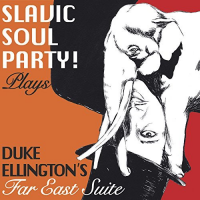 Slavic Soul Party
Slavic Soul PartyLive at Barbés: Slavic Soul Party Plays Duke Ellington's Far East Suite
Ropeadope Records
2016
In the late 1990s, visionary percussionist Matt Moran founded Slavic Soul Party, a brass band designed to stretch the boundaries between Eastern and Western European traditional music until those boundaries snap. More than two decades and twenty members later, "New York's Official #1 Brass Band for BalkanSoulGypsyFunk" fully realizes this vision by performing one of Duke Ellington's most famous Billy Strayhorn collaborations: 1963's The Far East Suite, around which Ellington organized a global tour schedule through the Middle East, South Asia, Turkey, Istanbul and the Balkans (and eventually recorded four years later for Bluebird/RCA).
Simply put, Slavic Soul Party Plays Duke Ellington's Far East Suite is amazingly played and incredibly fun. SSP breathes abundant life into each tune, pulling out threads from Ellington's original tunes and reweaving them into vibrant and colorful new cloth, with the brass and reed soloists genuinely meeting the expertise and excitement of the Duke's original instrumentalists. There's tuba instead of bass, and accordion instead of keyboards or guitars, and yet they rock.
This party starts jumping from the "Tourist Point of View." Joyous tuba thumps out the bass line, the trumpet soloist blows hot jazz, and the brass section rises and falls in soundwaves which seem like great mountains slipping past your window as your train rumbles through someplace you've never been before. Collectively, the band sounds like one big throbbing, churning rhythm machine and, from just this one song, you can't believe they can maintain their pace. And then, through raveups such as "Depk" and the cinematic and hot "Blue Pepper," which sounds like the craziest parade you ever heard marching past in double time, they do.
Many other titles align with their sound. After rustling to awaken in rattling kettle pots, the "Bluebird of Dehli" rises and falls on trumpet wings while reeds dance and flutter like butterflies nearby. Trumpet and brass rise and fall with a Hebrew or Middle Eastern sound as if climbing up and down "Mount Harissa" (which is in Lebanon). As SSP rips through their arrangements of music Ellington wrote more than fifty years ago, what might seem anachronistic sounds so vital and energetic instead.
The Ellington Orchestra's Far East Suite tour never actually made it to the Far East. The US State Department cut the tour short and the band came home from Turkey on November 22, 1963, after the assassination of US President Kennedy.
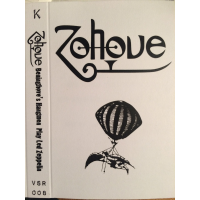
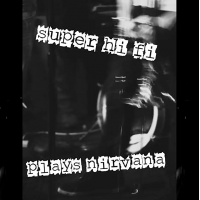 Super Hi Fi
Super Hi Fi Super Hi Fi Plays Nirvana
Beninghove's Hangmen
Beninghove's Hangmen Plays Led Zeppelin
Very Special Recordings
2016
Super Hi-Fi founder and bassist Ezra Gale established his cassette-and download-only label Very Special Recordings to give his compatriots and their fans the chance to take a chance. "The fact that cassettes are cheap to manufacture and to buy is huge, because we can take chances and just put out things we love, which we wouldn't be able to do if they cost as much as records," he explains. "And people who see something that's only five or six bucks can take a chance on discovering new music." The label's first two releases explore the music of two rock 'n' roll icons, Led Zeppelin and Nirvana, in brand new musical light.
The members of Brooklyn's Super Hi-Fi have backed up stylists ranging from Donavan to Bill Frisell to Beyonce, and released Super Hi Fi Plays Nirvana to coincide with the twenty-fifth anniversary of Nirvana's commercial breakout Nevermind. Years ago, Gale was in a college band that opened for the Seattle trio and he's wanted to stew Nirvana's crunchy power-pop in Super Hi-Fi's dubstyle reggae ever since. "I hate cover versions that just sound like the original," he says. "So with Nirvana, it seemed interesting to make something new out of something so familiar." Remixers Victor Rice (from Brazil), Doctor Sub (Italy) and Brooklyn homeboy Prince Polo stir their own unique spices into this thick dub stew.
"Heart Shaped Box (9 Lives Dub)" remains true to one of Nirvana's most famous compositions and Hi-Fi's dub, sounding both familiar and new. Trombone "sings" the lead vocal with a second horn in harmony; lead guitar wrenches away the second verse into an angry, squealing fuzztoned blues, then the horns return for the final verse, all chugging up and down that inscrutable dub reggae rhythm. "Verse Chorus Verse (Doctor Sub Remix)" churns upon industrial grunge guitar which evaporates into thick clouds of dub, and (somehow) darkly illuminates the blues or at least the melancholy and hurt within Kurt Cobain's compositions.
Super Hi Fi Plays Nirvana also takes on two of Nirvana's favorite outside compositions: "Love Buzz (Doctor Sub Remix)," written by Shocking Blue (the Dutch group best known for their '60s pop paean to the goddess "Venus"), whips up a sandstorm of swirling electric guitar rage. "Where Did You Sleep Last Night? (9 Lives Dub)" gets even crazier, refracting Lead Belly's primal blues through Nirvana's rock 'n' roll, then reflected in dubstyle. It's one hell of a way to play the blues.
If you're going to play Led Zeppelin like Beninghove's Hangmen Plays Led Zeppelin, you'd better be sure of two things: You'd better have a great drummer and a guitarist who can shred the blues. Leader and saxophonist Bryan Beninghove covers this in spades, as this tribute burns through two drummers and three guitar players (including Hi-Fi's Gale, who switches from bass).
Courageously, Beninghove's Hangmen open and close their tribute with two of LedZep's most iconic extended blues. To open, guitar chords rip through the famous ascending Middle Eastern hook of "Kashmir" (transposed from the original's strings), a crunching platter from which the leader's saxophone chews up and spits out the vocal line in brittle, broken phrases. To close, the rhythm section absolutely nails the blues stomp of "When the Levee Breaks" to the killing floor, with trombone singing the melody as a woozy, boozy blues.
They demonstrate even more guts by taking even more chances with new arrangements in between. Lead saxophone and trombone chirping in counterpoint paint a Klezmer face on the warbling reggae of "D'yer Maker." "What Is and What Should Never Be" transforms into a rippling trombone blues with saxophone and guitars buzzsawing through its chorus, and culminates in a kaleidoscopic blur of rampaging, electric blue sound. Bass and drums pummel the rhythm of "Immigrant Song" into screaming submission while guitars and saxophone battle for supremacy over the sound.
You'd better not mess around with Led Zeppelin's iconic Gods of Thunder sound, either. "It's very easy to get cute with the stuff," Beninghove acknowledges, "but with Led Zeppelin, you better be all in or the audience is going to smell it."
Tracks and Personnel:
Brown Sabbath II
Tracks: Supernaut; Snowblind; Symptom Of The Universe featuring Aaron Behrens; Fairies Wear Boots; Children Of The Grave; Electric Funeral; Sweet Leaf; Sabbath Bloody Sabbath featuring Aaron Behrens.
Personnel: Brownout: Alex Marrero: vocals; Adrian Quesada: electric guitar; Beto Martinez: electric guitar; Greg Gonzalez: electric bass; John Speice: drums, timbales, percussion; Mathew "Sweet Lou" Holmes: congas, bongos, percussion; Gilbert Elorreaga: trumpet; Mark "Speedy" Gonzales: trombone, horn arrangements; Josh Levy: baritone sax; with Aaron Behrens: lead vocals ("Symptom of the Universe," "Sabbath Bloody Sabbath"); Dan Bechtoldt: tenor sax.
Zurich 1961
Tracks: Happy Faces; Along Came Betty; My Baby; Sticks And Stones; Georgia On My Mind; Blue Stone; Margie; Hit The Road, Jack; The Birth Of A Band; I Remember Clifford; Come Rain Or Come Shine; Ghana; I Believe To My Soul; I've Got News For You; Misty; I Wonder; Ray Minor Ray.
Personnel: Ray Charles: piano, vocals; Marcus Belgrave: trumpet; Wallace Davenport: trumpet; Phil Guilbeau: trumpet; John Hunt: trumpet; Henderson Chambers: trombone; Dickie Wells: trombone; Keg Johnson: trombone; Rudy Powell: alto saxophone; Hank Crawford: alto saxophone; David "Fathead" Newman; tenor saxophone, flute; Don Wilkerson: tenor saxophone; Leroy Cooper: baritone saxophone; Elbert "Sonny" Forriest: guitar; Edgar Willis: bass; Bruno Carr: drums. With the Raelettes: Priscilla "Pat" Lyles, Margie Hendricks, Gwen Berry, Darlene M'Crae.
The Organ Grinder
Tracks: Open The Gate; You Are Old, Father William; Funambule; The Woods; Calcutta Cutie; LORA; Bicycle Day; Inferno Pt. 1; Shapeshifter; Always Go Left in the Maze; Om.
Personnel: Free Nelson Mandoomjazz: Rebecca Sneddon: sax; Colin Stewart: bass; Paul Archibald: drums, piano, pipe organ; with Luc Klein: trumpet; Patrick Darley: trombone.
Live with a Boom
Tracks: R2d2; Optimistic; Fairytale; Pensamentos; Fountain; Garden Walls; Printer; Maio Maduro Maio; Use Me; It Ain't Necessarily So.
Personnel: Melissa Oliveira: vocals; João Artur Moreira (JAM): turntables, visuals; Tuur Moens: drums; José Carlos Barbosa: double bass; Vixilio da Silva: guitar; Miguel Amaral: Portuguese guitar; Joris Roelofs: bass clarinet; Rogerio Santos: beatbox.
Cool
Tracks: Love For Sale; Fever; Cool; Day-O (The Banana Boat Song); Let's Do It Let's Fall In Love; Round Midnight; Invitation; The Shadow of Your Smile; Mingus, Miles and Coltrane; You Do Something To Me; Nature Boy; My Favorite Things; Moon River.
Personnel: Joyce Moreno: vocals, guitar, arrangements; Tutty Moreno: drums, percussion; Helio Alves: piano; Rodolfo Stroeter: bass; Tomaz Andrade: vocals; Anna Coelho: vocals; André Miranda: vocals.
Live at Barbés: Slavic Soul Party Plays Duke Ellington's Far East Suite
Tracks: Tourist Point of View; Bluebird of Dehli; Isfahan; Depk; Mount Harissa; Blue Pepper; Agra; Amad; Ad Lib on Nippon.
Personnel: John Carlson: trumpet; Kenny Warren: trumpet; Peter Hess: saxophone, clarinet; Peter Stan: accordion; Matt Musselman: trombone; Tim Vaughn: trombone; Ron Caswell: tuba; Chris Stromquist: snare drum, percussion; Matt Moran: tapan, goç, bubanj.
Super Hi Fi Plays Nirvana
Tracks: Verse Chorus Verse (Doctor Sub Remix); Polly (Prince Polo Dub); Heart Shaped Box (9 Lives Dub); Something In the Way (Prince Polo Dub); Space Needle (Victor Rice Dub); Love Buzz (Doctor Sub Remix); Where Did You Sleep Last Night? (9 Lives Dub); Space Needle (Victor Rice "Jerry Lewis Dub").
Personnel: Rick Parker: trombone; Jon Lipscomb: guitar; Ezra Gale: bass; Madhu Siddappa: drums; Curtis Fowlkes: trombone ("Verse Chorus Verse"); Robert Stringer: trombone ("Polly," "Heart Shaped Box," "Space Needle," "Where Did You Sleep Last Night?"); Alex Asher: trombone ("Something in the Way," "Love Buzz").
Beninghove's Hangmen Plays Led Zeppelin
Tracks: Kashmir; Misty Mountain Hop; What Is and What Should Never Be; Zohove; Immigrant Song; D'yer Maker; When the Levee Breaks.
Personnel: Bryan Beninghove: saxophone; Rick Parker: trombone; Eyal Maoz: guitar; Dane Johnson: guitar; Ezra Gale: guitar; Shawn Balthazar: drums ("Kashmir," "What Is and What Should Never Be," "Immigrant Song"); Kevin Shea: drums ("Misty Mountain Hop," "Zohove," "D'yer Maker," "When the Levee Breaks").
< Previous
Larry Coryell: Free Spirit and Pioneer
Next >
Northern Adventures
Comments
About Brownout
Instrument: Band / ensemble / orchestra
Related Articles | Concerts | Albums | Photos | Similar ToTags
Brownout
From the Inside Out
Chris M. Slawecki
Black Sabbath
Ozzy Osbourne
Ray Charles
Marcus Belgrave
Hank Crawford
David "Fathead" Newman
The Coasters
Percy Mayfield
Quincy Jones
Sonny Stitt
benny golson
Count Basie
duke ellington
Van Morrison
Free Nelson Mandoomjazz
Albert Ayler
Sonny Rollins
Wayne Shorter
archie shepp
Luc Klein
Horace Silver
Melissa Oliveira
Tuur Moens
José Carlos Barbosa
Miguel Amaral
Joris Roelofs
Stan Getz
Clifford Brown
Joyce Moreno
Cole Porter
Slavic Soul Party!
Matt Moran
Slavic Soul Party
Billy Strayhorn
Led Zeppelin
Bill Frisell
Leadbelly
Bryan Beninghove
For the Love of Jazz
 All About Jazz has been a pillar of jazz since 1995, championing it as an art form and, more importantly, supporting the musicians who create it. Our enduring commitment has made "AAJ" one of the most culturally important websites of its kind, read by hundreds of thousands of fans, musicians and industry figures every month.
All About Jazz has been a pillar of jazz since 1995, championing it as an art form and, more importantly, supporting the musicians who create it. Our enduring commitment has made "AAJ" one of the most culturally important websites of its kind, read by hundreds of thousands of fans, musicians and industry figures every month.

